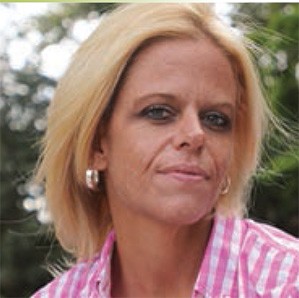
Jennifer Cervi is focused, determined and knows what’s good for her, and now she’s driven to help others through her fi eld study geared toward students in recovery.
“There are a lot of recovering students who don’t want to center their social life around their recovery group,” explains Cervi, “but that doesn’t mean students don’t want help to get or stay clean and sober. It’s incredibly difficult for students with drug and alcohol addiction to fend for themselves on campus.”
Students age 18 to 24 are the fastest growing demographic among Americans seeking treatment for substance abuse, according to the Substance Abuse and Mental Health Services Administration. The numbers of students in that age range vying for help more than doubled during the decade ending in 2009.
“What students really want, particularly if they’re newly sober, is a place to be together, to have fun and not have the temptations of drinking and drugs in a social situation,” Cervi said, “and that’s been my field study focus.” Cervi initiated conversations to create a support system for recovering students with Mary Jo Desprez, an administrator for the University’s Alcohol Policy and Community Initiatives Program. This summer Cervi was wholeheartedly involved as the University of Michigan launched the Michigan Collegiate Recovery Program, which is already serving hundreds of students through counseling, self-help recovery courses and alcohol-and drug-free activities to help students adjust to sobriety and campus life.
Cervi has created a fi eld study niche as she works closely with University Housing to identify recovery housing for those new to the campus, or newly in recovery. Thanks to Cervi, the University Housing application off ers a separate housing option for students in recovery
“You can’t put a student into a living environment with round-the-clock partying temptations when they’re 30 days sober,” Cervi said. “This is a program of second chances, and we want students to be academically successful and successful in their recovery. Being a part of that is the most gratifying thing I do!”
Not only has she secured designated recovery space, which gives the students a place to hang out on campus, but she helps students find recovery meetings, therapists, and even provides the building blocks of a healthy community by driving them to her favorite yoga studio.
There are a lot of recovering students who don’t want to center their social life around their recovery group, but that doesn’t mean students don’t want help to get or stay clean and sober. It’s incredibly diffi cult for students with drug and alcohol addiction to fend for themselves on campus.
Cervi’s success with the U-M student recovery program has been garnerning plenty of media attention including the Wall Street Journal and the Chronicle of Higher Education.
An April 2012 graduation spurs her on to the next steps of her career and her passion, which ideally would lead her to growing the student recovery program at the University of Michigan and building relationships with other universities.
Marci Raver Lash is the editor of Ongoing.